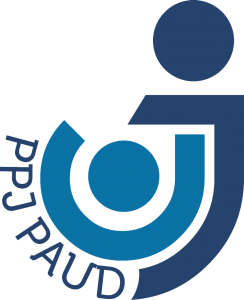Peningkatan Perkembangan Kecerdasan Naturalistik Anak melalui Metode Outbound
Increasing the Development of Children's Naturalistic Intelligence through the Outbound Method
DOI:
https://doi.org/10.37680/absorbent_mind.v2i02.1501Keywords:
Kecerdasan Naturalistik, Rangsangan, OutbondAbstract
Kecerdasan naturalistik anak usia dini sangat penting untuk dirangsang, karena pada usia dini anak lebih cepat menerima rangsangan dan mengaplikasikan ilmu atau pengetahuan yang telah diperolehnya. Salah satu cara untuk merangsang adalah melalui metode outbound. Kecerdasan naturalistik anak kelas B RA Muslimat NU XVII Keser, Tunjungan, Blora belum tercapai dan berkembang. Oleh karena itu, tujuan penelitian ini untuk menganalisis peningkatan kecerdasan naturalistik anak melalui metode outbound. Jenis metode yang digunakan peneliti adalah kualitatif, yaitu dengan cara analisis data wawancara dan observasi mendalam di lapangan. Dari sumber data yang peneliti peroleh dari lapangan, peneliti mampu merumuskan research question tentang bagaimana penerapan peningkatan kecerdasan naturalistik melalui metode outbound di RA Muslimat NU XVII Keser, Kec. Tunjungan, Blora untuk meningkatkan kecerdasan naturalistik pada anak. Hasil penelitian ini menunjukkan adanya peningkatan kecerdasan naturalistik anak kelas B RA Muslimat NU XVII Keser, Tunjungan, Blora. Jadi dapat disimpulkan bahwa dengan kegiatan outbond mampu meningkatkan kecerdasan naturalistik anak.
Abstract
Naturalistic intelligence of early childhood is essential to be stimulated because, at an early age, children are faster to receive stimulation and apply the knowledge or knowledge they have acquired. One way to encourage is through the outbound method. The naturalistic intelligence of class B children RA Muslimat NU XVII Keser, Tunjungan, and Blora has not yet been developed. Therefore, this study aims to analyze the increase in children's naturalistic intelligence through the outbound method. The method used by the researcher is qualitative, namely by analyzing interview data and in-depth observations in the field. From the data sources that the researchers obtained from the area, the researchers were able to formulate a research question about how to apply the increase in naturalistic intelligence through the outbound method at RA Muslimat NU XVII Keser, Kec. Tunjungan, Blora to improve naturalistic intelligence in children. The results of this study indicate an increase in the naturalistic intelligence of class B children RA Muslimat NU XVII Keser, Tunjungan, and Blora. So it can be concluded that outbound activities can improve children's naturalistic intelligence.
References
Amri, A., & Amalia, D. (2021). Mengembnagkan Kecerdasan Naturalistik Anak Usia Dini Melalui Penerapan Metode Proyek di PAUD Ananda Riski Kabupaten Aceh Besar. Jurnal Ilmiah Mahasiswa Pendidikan Anak Usia Dini, 6(4).
Anam, N. (2021). Formulasi Belajar dan Pembelajaran Berbasis Kecerdasan Multiple Intelligences di Lembaga Pendidikan. Childhood Education: Jurnal Pendidikan Anak Usia Dini, 2(1), 12–34.
ARINI, A. (2020). Implementasi Pendekatan Eksplorasi Lingkungan Untuk Mengembangkan Pengetahuan Sains Anak Usia Dini Usia 5-6 Tahun Di TK Dharma Wanita Sukarame Bandar Lampung. UIN Raden Intan Lampung.
Ashuri, N. M., Sa’adah, N. N., Setiawan, E., Ermavitalini, D., Saputro, T. B., & Nurhayati, A. P. D. (2021). Penanaman Karakter Peduli Lingkungan Melalui Program Edukasi Konservasi Keanekaragaman Hayati Sejak Usia Dini. Prosiding SNPBS (Seminar Nasional Pendidikan Biologi Dan Saintek), 137–145.
Ernalia, Y. (2020). Strategi Pembelajaran di luar Kelas (Outing Class) dalam Mengembangkan Kecerdasan Naturalis Anak di PAUD Negeri Pembina Bermani Ilir Kabupaten Kepahiang. IAIN BENGKULU.
Mariyana, R., & Setiasih, O. (2018). Penataan Lingkungan Belajar Terpadu Untuk Meningkatkan Potensi Kecerdasan Jamak Anak. PEDAGOGIA, 15(3), 241–249.
Murdiyanto, E. (2020). Penelitian Kualitatif (Teori dan Aplikasi disertai contoh proposal). Lembaga Penelitian dan Pengabdian Kepada Masyarakat (LP2M) UPN” Veteran ….
Noortyani, R., Mutiani, M., Syaharuddin, S., Jumriani, J., & Abbas, E. W. (2021). Penguatan Perkembangan Anak melalui Alunan Lagu Pengantar Tidur" Dindang Banjar".
Purba, F. J., Subakti, H., Muntu, D. L., Simarmata, J., Avicenna, A., Harianja, J. K., Sitompul, L. R., Chamidah, D., Hasan, M., & Arhesa, S. (2022). Strategi-Strategi Pembelajaran. Yayasan Kita Menulis.
Putri, M. (2020). Implementasi Kegiatan Bercocok Tanam Dalam Meningkatkan Kecerdasan Naturalis Pada Anak Usia 5-6 Tahun Kelompok B Di Tk Dharma Bakti Kota Bengkulu. IAIN BENGKULU.
Ruf’ah, R. (2018). Pendidikan Karakter Berbasis Multiple Intelegent Munif Chatib Dalam Perspektif Pendidikan Islam. Universitas Islam Negeri" Sultan Maulana Hasanuddin" Banten.
Sadiku, M. N. O., & Musa, S. M. (2021). Naturalistic intelligence. In A Primer on Multiple Intelligences (pp. 31–42). Springer.
Safitri, W., Sumardi, S., & Muslihin, H. Y. (2020). Pengembangan Bahan Ajar Permainan Fun Outbound Mencari Harta Karun. Jurnal Paud Agapedia, 4(1), 96–106.
Sunanik, S. (2018). Pembelajaran berbasis alam untuk anak usia dini di TK Alam Alazhar Kutai Kartanegara. Al-Madrasah: Jurnal Pendidikan Madrasah Ibtidaiyah.
Tambunan, H., Silitonga, M., & Sidabutar, U. B. (2020). Blended Learning dengan Ragam Gaya Belajar. Yayasan Kita Menulis.
Wulan, D. S. A. (2021). Peningkatan Kecerdasan Naturalis Melalui Media Realia di TK Al Hidayah Kabupaten Langkat. Jurnal Usia Dini, 7(1), 1–11.
Yantini, C., Untari, M. F. A., & Listyarini, I. (2021). Penerapan Metode Permainan Ular Tangga dalam Meningkatkan Prestasi Belajar Matematika Materi Bangun Ruang Kubus Siswa Kelas V SDN Ngemplak Simongan 01 Semarang. Jurnal Kualita Pendidikan, 2(1), 28–33.
Downloads
Published
Issue
Section
License
Absorbent_mind; Journal of Psychology and Child Development allow the author(s) to hold the copyright without restrictions and allow the author(s) to retain publishing rights without restrictions, also the owner of the commercial rights to the article is the author.
License:
- Attribution: You must provide an appropriate name, include a link to the license, and certify that changes have been made. You can do this in an appropriate manner, but do not imply that the licensor supports you or your use.
- Share Alike: If you compose or make derivatives of these materials, you must distribute your contributions under the same license as the original materials.
- No additional restrictions: You may not use legal provisions or technological means of control that legally restrict others from doing the things this license allows.
You are free to:
- Share, copy, and redistribute this material in any form or format.
- Adapt, modify, and create derivatives of this material for any purpose, including commercial purposes.
- The licensor cannot revoke the above terms as long as you comply with the terms of this license.
Creative Commons Attribution-ShareAlike 4.0 International License (CC BY-SA 4.0).






